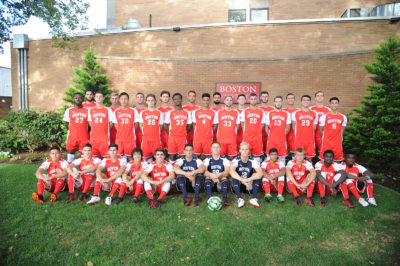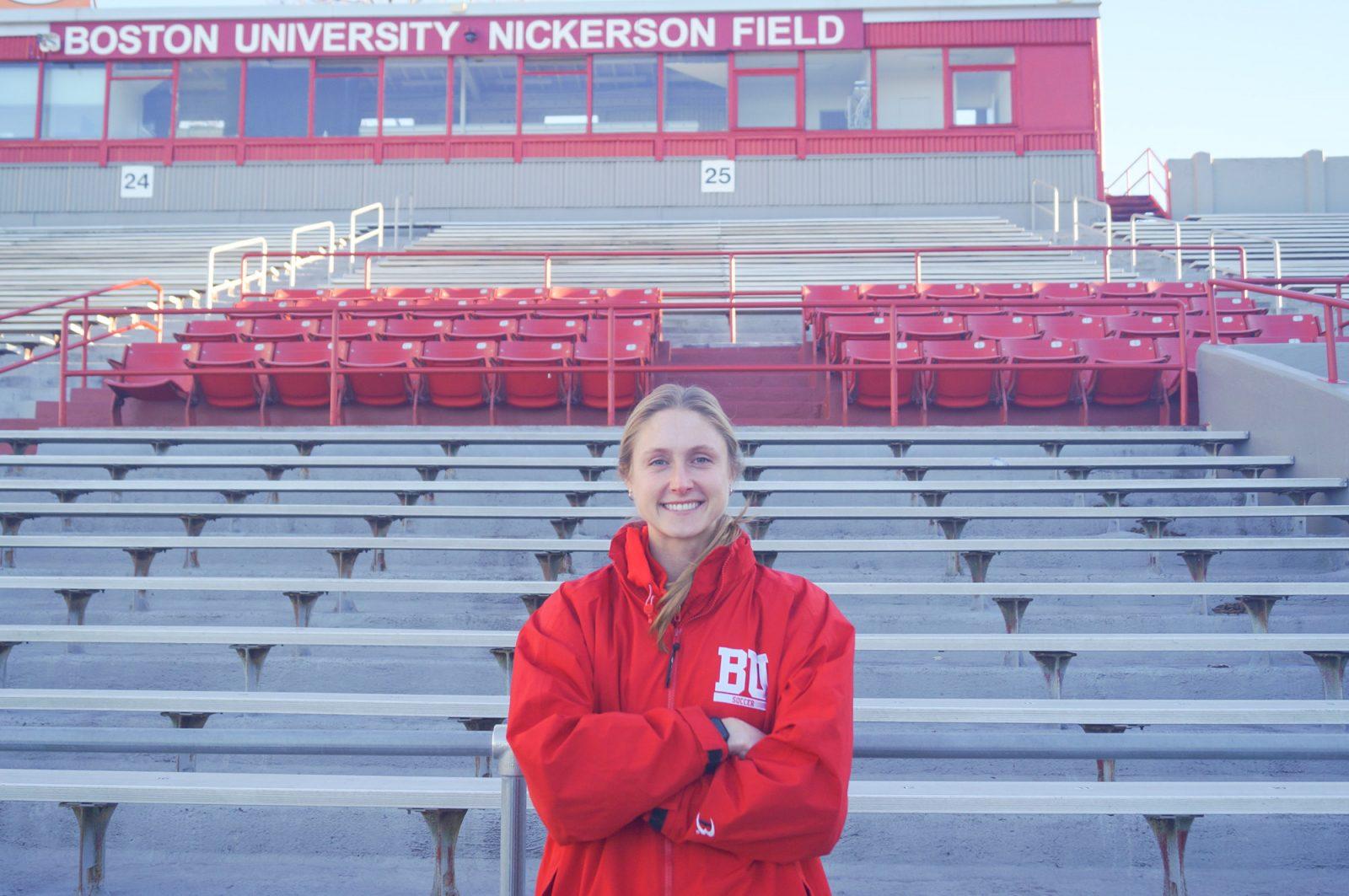
Thirty-five men. Ten countries. One squad. This season, Nickerson Field will showcase talent brought to the Boston University men’s soccer team from nations around the world. Representing eight states in the United States, as well as Belgium, Croatia, England, Germany, Iceland, Sweden, Ghana, Sierra Leone and New Zealand, the Terriers unite to form a multinational soccer team — the most diverse in the Patriot League.
Freshman midfielder Peter Kargbo hails from Makeni, a city located in the small country of Sierra Leone which is on the west side of Africa. Kargbo came to the United States to chase his dreams of playing American soccer. For Kargbo, soccer is not only the sport of his choice but has been a part of his identity since the age of seven.
“I was introduced to [soccer] at a very young age and just fell in love with it,” Kargbo wrote in a Facebook message. “Soccer is just a big part [of] my family, as my dad played soccer and later was the head coach of my town.”
According to a 2013 Gallup poll, soccer is topped by baseball, basketball and football for the most popular sport watched in the United States. While only a fraction of Americans take interest in watching or even playing the sport, other countries around the world see it as a way of life. In Sierra Leone soccer is the most played sport in the country and in turn has a much larger fanbase than in the United States.
Despite his country’s small size, which has a population of roughly 6.8 million people, Kargbo reflects on the immense popularity of soccer within his home country.
“There is more love [for] the sport in Sierra Leone than [in the United States], even though my country is like 100 times smaller than the U.S.,” Kargbo wrote in a Facebook message. “It’s more than a sport there … [it’s] a way of life, people love soccer!”
Beyond just the popularity of soccer in the other countries many of the Terriers call home, various technical aspects of the sport are distinct to each nation. Styles of play, action plans for set pieces and even the positional organization of defensive and offensive players on the pitch vary remarkably across countries.
Kargbo noted the difference in style of how the sport is played in his home country in contrast to in the United States, particularly the level of aggression from the players.
“Here [in the United States] it’s more about physicality [while] back home it’s more about speed of play and skill,” Kargbo wrote in a Facebook message.
Although each member of the team possesses a unique style of play, the Terriers are working hard to make the best of their differences that pre-exist due to their diverse cultural backgrounds. However, the diversity of the team only makes BU Head Coach Neil Roberts more eager to work with the ever-changing group of players.
“They have some different styles, but that’s the same as if they came from different parts of the country in the U.S.,” Roberts said. “One of the interesting things is trying to blend those styles together.”
These differences in play prove to be advantageous for BU.
Evidence from a study titled “Diversity and Group Performance: Evidence from the World’s Top Soccer League” pointed toward a positive correlation between team heterogeneity and productivity on the field. BU’s pool of players is brimming with cultural diversity, a facet the Terriers will look to utilize to its fullest potential as they enter into this season’s battle for the Patriot League title.
Roberts said the diversity within the university influences the diversity of athletes on the team.
“Most teams are made up of basically what the student population is of the institution they’re at,” Roberts said. “BU is a diverse school [and] I think our team kind of represents what BU is. They draw students from all over the world and we do as well. BU has a reputation that is worldwide.”
Regardless of the challenges posed by the 10 different nationalities on the team, in the end, the basics of the game remains the same, independent of stylistic, technical and cultural differences. Roberts has been coaching the men’s soccer team for 33 years and said he sees many similarities among his players, regardless of where they call home.
“I’ve been coaching kids from all over the world and all over the country for years,” Roberts said. “And an 18-year-old kid is an 18-year-old kid. They want the same things, they want to study, they want to play soccer … and they want to enjoy themselves.”
While Kargbo and his fellow teammates could have stayed in the comforts of their home countries, they each decided to come to the United States and play soccer for BU. Although Kargbo has to adjust to the differences that American soccer presents, he says his favorite part about playing the sport in the United States “is the opportunities it has to offer by bringing your dreams alive.”
Roberts acknowledges the bravery of Kargbo and the other players to come to the United States and play the sport they love while also pursuing a higher education at a world renowned university to provide themselves with opportunities in the future.
“[Peter] is a very talented soccer player for sure,” Roberts said. “He has high expectations for himself, but he wants to learn. He wants an education [and] he wants to play [soccer].”




















































































































